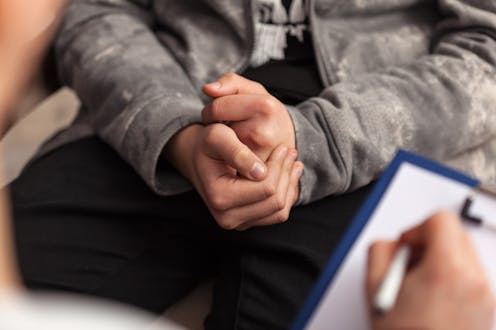Health research must be ethical – we can do more to make sure that's the case for young trans people and their families
- Written by Cristyn Davies, Research Fellow in Child and Adolescent Health, Faculty of Medicine and Health, University of Sydney

Monday’s Four Corners program on gender affirming care highlighted concerns about research undertaken with 79 young trans people and their families who sought help at the Children’s Hospital Westmead.
Since the Four Corners episode, the New South Wales health minister has announced a review of the scientific evidence related to health care for young trans people.
One family who took part in the research featured in the ABC program expressed shock and distress at how they and others in their community were represented and how the study was framed when it was published. The research suggested links to family trauma and dysfunction and high rates of “desistance” (defined in the research as the resolution or disappearance of gender-related distress).
The program raised important questions about ethical research. What are the obligations of researchers and ethics committees to ensure the best outcomes? How can we ensure ethical principles for young trans people and their families are met – especially when they might see research as one of few avenues for accessing care? How do young trans people and their families know when they should or shouldn’t sign up?
Read more: Family support protects trans young people – but their families need support too
Obligations and oversight
In Australia, a human research ethics committee must assess research conducted with people before it’s given the go-ahead. These committees are often located in universities, government departments and hospitals. They include a chairperson, members of the public and people with expert knowledge and current experience in research.
Ethics committees aim to ensure research proposals meet ethical principles and guidelines. These say research should be respectful, culturally safe and undertaken in the best interest of the individuals and communities.
Marginalised communities, in particular, need culturally safe research. This includes trans young people, many of whom experience anxiety and depression as a result of stigma and discrimination.
Ensuring research participants are culturally safe means they feel accepted and are socially, emotionally and physically protected from harm when participating in health research. Cultural safety includes recognising research participants may have more than one marginalised identity, such as young Aboriginal trans people or young trans people with a disability.
Researchers and ethics committees also must ensure research is conducted ethically. Doing research responsibly includes being open and honest in developing, undertaking and accurately reporting research findings.
Read more: Yes, words can harm young trans people. Here's what we can do to help
What about young trans people and their families?
“Do good”, “do no harm”, and “nothing about us without us” are fundamental ethical principles. Accordingly, it is expected research with young trans people and their families is undertaken ethically, responsibly and with integrity.
Young trans people and their families need to be involved throughout the research process. Partnerships must be established before research proposals are submitted to ethics committees for approval. Working in partnerships with trans children, young people, their families, and communities builds mutual trust, respect, and accountability.
When young trans people and their families are not meaningfully included as research partners, research findings can be misinterpreted. This can cause harm to young people and their families.
The Wellbeing, Health & Youth engagement framework co-produced with young people from different marginalised groups presents a set of values and practical questions for researchers that promote ethical engagement with young people. These include looking at how co-design can create an approach that is youth-centred, strengths-based and focused on maximising opportunities for health and wellbeing.
When engagement includes mutual trust and accountability, diversity and inclusion, and equity and responsiveness, participants and their loved ones are unlikely to feel shock at how their experiences are presented.
How can young trans people and their families assess research ethics?
Participants should be presented with clear information about what the study will involve and the implications of participation. Before deciding on whether to participate in research, young trans people and their families should know their rights in research settings including the right to complain and what happens to their personal data if they withdraw.
Helpful questions to ask before consenting to participate in research include:
- do the researchers have expertise in trans children and young people’s health?
- what organisations do they work for?
- why are they doing the research?
- how connected are they to the communities they are researching?
Participation in research should be a choice. It should not involve any kind of coercion, such as feeling that not participating in the research would mean a person would not get the same access to gender-affirming health care.
Robust research is needed
Young trans people and their families experience significant marginalisation and health inequity.
Robust research is vital to reducing this health inequity and improving the health and wellbeing of young trans people.
To ensure this research is of the highest standard, ethics committees must have the expertise to uphold ethical principles in research involving trans children and adolescents. They may need more training and should seek independent guidance from subject experts, including from people with lived experience.
As the Four Corners program shows, high-quality guidelines specifically for research with trans people, including children and adolescents, are urgently needed.
Authors: Cristyn Davies, Research Fellow in Child and Adolescent Health, Faculty of Medicine and Health, University of Sydney





